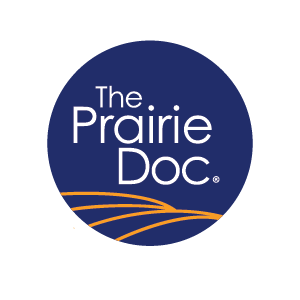Feeling Dizzy? How Physical Therapy Can Help You Find Your Balance

Have you ever stood up too quickly and felt the room spin? Or rolled over in bed and suddenly felt like you were on a merry go round you didn’t ask to ride? Maybe you’ve started to notice you feel a little unsteady when walking or need to hold onto furniture “just in case.” If that sounds familiar, you are not alone. And more importantly, you are not without options.
Dizziness and balance problems are surprisingly common. These issues can develop after a cold, a minor head injury, or simply as part of the aging process. But despite how common they are, they are often overlooked. Many people chalk them up to aging or learn to “just live with it,” avoiding stairs, skipping favorite outings, or giving up activities they enjoy because they don’t feel steady.
That is where physical therapy can make a real difference. And no, it is not just about stretching or lifting weights. Physical therapists who focus on balance and vestibular care can help identify the source of your symptoms and offer practical, personalized solutions.
Let’s start with one of the most common causes of vertigo: Benign Paroxysmal Positional Vertigo, or BPPV. It sounds complicated, but the fix is often simple. In BPPV, tiny crystals in your inner ear float into the wrong place and start sending confusing signals to your brain. The result? Sudden, brief spinning sensations with head movement or changes in position. A trained physical therapist can perform a series of head and body movements called repositioning maneuvers to guide the crystals back where they belong. Relief is often immediate.
But not all dizziness is BPPV. Sometimes it stems from vestibular system weakness, where the inner ear is not working properly. This can be caused by a virus, changes that come with age or for reasons unknown. Other times, balance problems are linked to neurological conditions like Parkinson’s disease or stroke, or to weakness and reduced movement after illness. Even changes in vision or sensation in your feet can throw off your balance.
That is why careful evaluation is so important. A physical therapist will assess how your eyes, ears, brain and muscles work together to keep you steady. Then they will create a personalized plan to help you feel more confident and stable. This may include exercises to improve gaze control, strengthen your muscles, practice safe walking and retrain your sense of balance.
Most importantly, therapy helps you rebuild your confidence. When you are afraid of falling or feeling dizzy, it is easy to stop moving. But that can make things worse. Physical therapy offers a safe way to stay active and regain control.
You do not have to live in fear of the next dizzy spell or miss out on the things you enjoy. If you are feeling off balance, ask your doctor if a referral to a vestibular trained physical therapist is right for you. The path to steady footing might be closer than you think.
Matt Leedom, PT, DPT, NCS, is a board-certified clinical specialist in neurologic physical therapy and an assistant professor in the Department of Physical Therapy at the University of South Dakota. He earned his B.S. in psychology from USD and his Doctor of Physical Therapy degree from Creighton University. Leedom’s clinical expertise includes the treatment of individual neurological conditions, including vestibular disorders. His research focuses on improving mobility and quality of life for individuals with Parkinson’s disease, with current projects exploring cognitive flexibility training and non-invasive brain stimulation to address gait and postural impairments. Follow The Prairie Doc® at www.prairiedoc.org, Facebook, Instagram, YouTube, and Threads. Prairie Doc Programming includes On Call with the Prairie Doc®, a medical Q&A show (most Thursdays at 7pm streaming on the Prairie Doc Facebook page), 2 podcasts, and a Radio program (on SDPB), providing health information based on science, built on trust.







